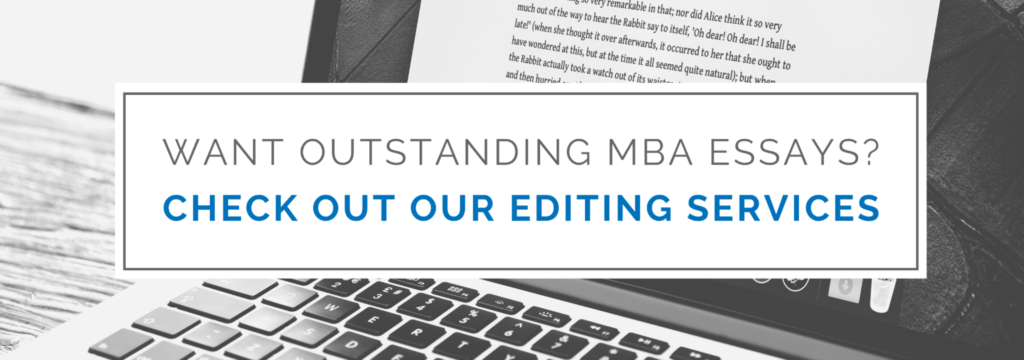UPDATE: This post was originally published on May 1, 2020. It has been updated with new tips and information below.
If you are applying to business school, you probably have a lot of commitments on your plate. You may be balancing a high-stress workweek with a volunteer job tutoring local high schoolers in math and chemistry. You may be trying to see your entrepreneurial dreams bear fruit while training for that marathon, or attempting to learn Japanese – let alone find time for loved ones!
Among all these variables grabbing for your attention, you may just be thinking, “I still have weeks to apply for my MBA – plenty of time!”
Think again.
Deciding to apply to an MBA is also a commitment – especially because the application process is so long, complex, and involves many different tasks. Despite all the chaos of life outside your application, you must plan on spending plenty of time on your application – probably considerably more than you think. And one of the most time-consuming parts of your essay will be composing your essays.
So, when should you begin writing your MBA application essays? The answer is easy: as soon as possible.
To be considered, you must start writing early on
Even if you are an excellent writer or an outstanding candidate, you cannot rush the process behind your application essays.
Remember, elite business schools like Harvard, London Business School, Wharton, or Berkeley see thousands of applications each year. If you simply jot down your response to their questions without much thought, strategy, or precision, it will be obvious to the admissions committee. Your top MBA program is searching for candidates that demonstrate discipline, hard work, and commitment, so your application itself needs to reflect these qualities.

Moreover, the admissions committee is looking for candidates that demonstrate their authentic selves, a habit of self-reflection, and a clear growth mindset. Ensuring you can put your best foot forward by demonstrating these traits in your essay – and your application as a whole! – will need reflection, strategic thinking skills, and, most importantly: lots of time.
Now, it is clear that there is no way you can pull this off in an all-nighter. Having a friend read your essay a few times over the weekend before the deadline absolutely will not cut it, either. Instead, we recommend starting the essay-writing process months before the deadline.
Besides, keep in mind that you must also be coordinating writing your essays with all the other necessary steps to prepare your application. This includes, but is not limited to, making in-person school visits, preparing for your interviews, contacting and working with your recommenders, and, of course, taking the GMAT. This process is individual to each candidate, and we recommend you calculate how long the entire process will take for you.
Winning essays take time
Anybody can write an application essay. However, when applying for a coveted spot at schools like INSEAD, Stanford, or Columbia Business School, your goal is not just to write an essay, but instead write a successful one.
A winning MBA essay will effectively persuade your reader – the admissions committee – that you deserve a spot in their program. Only by detailing compelling, streamlined arguments can you engage the reader and stand out among thousands of other applicants.
Successful essays are not just typed up on the fly – instead, they go through a rigorous development process that takes a close look at elements such as overall message, structure, content, storytelling, as well as language and phrasing.

The Writing Center from University of North Carolina at Chapel Hill, in their discussion “What is Good Writing,” describes the complexity of the decision-making process that underlies your thoughts’ journey from head to hand to paper:
Each writer has an idiosyncratic combination of thinking, planning, drafting, and revising that, for him, means “writing” something. No matter how an individual describes his process…, each person (usually unconsciously) negotiates the series of choices required in his individual context and produces a draft that begins to capture a representation of his ideas. For most people, this negotiation includes trial and error (this word or that?), false starts (beginning with an example that later proves misleading), contradictions (I can’t say X because it may throw Y into question), sorting (how much do I need to say about this?), doubt about how the idea will be received, and satisfaction when they think they have cleared these hurdles successfully.
By describing writing as a negotiation, it becomes clear that – like any type of writing – drafting your MBA essays will be a complex, focused process requiring constant decision-making and readjustment based on what you want to highlight about yourself and your experiences, and how all of this matches with your school(s) of choice.
Of course, if English is your second language, or you generally struggle with writing, this process can feel even more complex and intimidating. Sometimes, it might even feel difficult to get your initial thoughts down on paper.
For those who struggle with this first step, it may be extra important to make sure you begin writing your essays ASAP. To help smoothen out the process, sites like Grammarly and many others offer writers of all levels tips on how to improve the writing process, such as ensuring you are concise and focused. Of course, if you still struggle with brainstorming and translating those first thoughts to paper, our team of editors have extensive experience helping clients overcome these hurdles. Be sure to reach out for a free consultation!
What elements go into a successful MBA essay?
Although MBA essay questions vary across schools, responses are rarely ever simple, straightforward answers. Instead, you will have to brainstorm strategically how you can answer each question to fit your personal brand, goals, and the values of each school. To create an overarching persuasive text, you often need to utilize various elements and combine them in creative, eye-catching ways.
At Ellin Lolis Consulting, we recommend several elements to our clients that help make your essays more persuasive, and thus, more successful. Among others, these elements include theme, stories, storytelling, and structure.
Theme
A theme in your MBA essay is your main point, or argument, that you want to convey to your reader. Each paragraph of your essay should support your theme to help reinforce your message.
Whether your theme is a more straightforward iteration of your career goals (such as “I dream of becoming an eco-minded professional through business”) or something more creative or personal, such as “Being there for my family is what matters most to me,” establishing a common thread throughout all of your responses will not only help you write more concisely and choose examples more easily, but it will also help your stories stick in the mind of the reader.
Stories and Storytelling
We often recommend using stories to support your central theme. In MBA essays, a story refers to a past experience that you can use to make your case.
For example, to explain why you care about the environment, you could tell a story about cleaning up trash on the beach with your parents as a teenager. You could later discuss how you began a recycling initiative at Bain. Both of these are stories that function to show (rather than just tell) the reader how you have already started “becoming an eco-minded professional,” for example.
Storytelling, on the other hand, refers to how you present the stories you have chosen in your essay. Rather than just recounting events dryly, we recommend a variety of strategies that can help you put some spice into your stories to make them more engaging, authentically you, and memorable – all of which can help you stand out to the admissions board.
For example, by adding some emotion and including your underlying motivations behind decisions and events, you can help make your story come alive without fear of sounding unprofessional. Take a look at our numerous articles on our expertise with stories and storytelling.

Structure
Structure is another element that we at Ellin Lolis Consulting consider essential when writing MBA admissions essays. The elements in your essay must have a logical order that helps solidify the reader’s understanding of your overall message.
We believe this is especially applicable when talking about your goals. Nearly every school asks applicants some form of the following question:
What are your post-MBA goals and how will your prior experience and the London Business School programme contribute towards these? (500 words)
-London Business School
These types of questions often work best with a simple past-future-present format to focus your argument on the most essential information. Take a look at this information in detail in our blog post to learn more.
Not only should your entire essay have a coherent structure, but each story as well. To do this, it almost always makes sense to write your examples in STAR-format. This ensures that you are communicating what is necessary and useful for the reader to both understand why you are recounting this particular story and in what ways it is important.
Writing essays sometimes requires re-writing essays
Keep in mind, not even the best writers are capable of capturing everything perfectly on the first try. You may even need multiple takes before you have created a first draft.
As The Writing Center says:
As we write, we constantly rewrite. Sometimes we do this unconsciously, as we juggle words, then choose, delete, and choose again. Sometimes we do this rewriting very consciously and conscientiously as we reread a paragraph or page for clarity, coherence, or simply to see what we’ve just said and decide whether we like it. Having read, we rewrite the same phrases or ideas to make a closer match to our intentions or to refine our discoveries through language. The process of writing and then reviewing, changing, and rewriting is a natural and important part of shaping expression for an anticipated audience. So while we are trying to put our words and ideas into a logical line, we are also circling round and back and over again.
This may help you get a sense of the often roundabout and nonlinear nature of the writing process. Go ahead – you may even want to give the finger that triggers the backspace key a good stretch before you begin your draft.
While developing your essay – whether writing a first draft or already working with your editor – you may discover that your thoughts feel disorganized and that you need to revise your draft to focus on structure. You may need to go back and reassess if all of your stories really support your argument. You may even realize that you need to go in a whole different direction altogether or review different strategies to see what works best. All of these issues take time to work out the kinks and can be particularly challenging to weather under a time-crunch.
While all of this may seem like a lot, we haven’t even entered into the most time-consuming part of the MBA essay process yet: editing.
After all, according to Grammarly, editing is one of the essential elements of good writing:
One of the qualities of good writers is the ability (and humility) to edit their own work. Your writing may be pretty good on the first draft, but knowing that it can always improve is what makes it great.
The editing process also takes time
Although composing your draft might have already felt like completing a marathon, the race isn’t over yet. In fact, now comes the most essential – and the most time-consuming – step of writing your MBA admissions essays.
Editing your essays can be a long and complicated process. Not only will you yourself be editing your writing, but so will your editor. In both of these stages, an edit isn’t simply reading the essay a few times. Instead, it involves comprehensive examinations of every word, sentence, paragraph, and the essay as a whole.
Not only will your editor help you realize if you need to tackle any of the problems mentioned above, but they can also help you refine your argument, polish your storytelling, and make sure the reader has all the context necessary to clearly understand your writing.
No matter how much time you needed to draft your first attempt, plan on spending the most time on the editing phase of the process.
Think about it this way:
Making decisions about words and ideas can be a messy, fascinating, perplexing experience that often results in something mysterious, something the writer may not be sure “works” until she has auditioned it for a real reader.
-UNC, The Writing Center
Often, a writer can examine their writing from every angle and polish it to perfection. However, when under the scrutiny of an outside perspective, an editor may catch inconsistencies, argument flaws, or simply ways to increase readability that you may never have seen. Of course, they may also just have some alternative ideas about how to present your argument or a more fitting theme that may help you perfect and polish your essay to perfection.
The ELC Editing Process
At Ellin Lolis Consulting, we have perfected this process to help you from conception to submission. Not only can we help you brainstorm ideas to get your first thoughts down, but we also take a detailed look at your writing every step of the way to make sure you are on the most straightforward path to a persuasive essay.

With every draft you submit, we offer comprehensive, actionable feedback. This way, we can guide you through the process of implementing our suggestions, trying out new ideas to improve your writing, and polishing your writing to reflect precisely what you were going for in the first place.
During this feedback process, our editors suggest strategic as well as technical edits. Strategic editing usually looks at big-picture ideas such as choice of theme and stories, as well as relevance, clarity, structure, and targeting your chosen school. On the other hand, technical editing examines the mechanics of the language and helps polish the text to sound professional, correct, and concise. Technical edits include the basics like grammar, spelling, punctuation, and syntax, but also much more such as readability and semantics. We also consider trimming texts to meet the required word count part of the technical editing process.
Depending on the time of year you submit your essays, the number of schools you plan on applying to, and current workflow capacity, this process can take multiple weeks – another good reason to start writing your MBA application essays ASAP.
You aim for authenticity, we will aim for perfection
Keep in mind, your drafts don’t need to be perfect. Let me reiterate: you do not need to submit a perfect draft to your editor.
In fact, if you spend so much time over-analyzing every last word before handing your writing over to your editor, you will likely become very frustrated. The nature of editing is to suggest changes and make adjustments to help you improve your writing. This being said, even if you submit a draft that you think could never be better, it is our job to put it under a microscope. We may even suggest changes that seem major or radical. This is to be expected.

Instead of aiming for perfection, try your best to get your thoughts down on paper, keep the text length reasonable, and express yourself authentically. Don’t worry if your thoughts need refining or the language isn’t precise – it is our job to help you narrow these elements down.
As mentioned above, writing is a nonlinear process. This means that the writing, editing, re-writing, and polishing phases of composing your MBA admissions essay may overlap.
We are here to help you through this process, whichever step you may be on. Let us worry about helping you create the perfect text by the end of the editing process.
Take the next steps

Remember, composing successful MBA essays means taking not only adequate time to get your draft down but also ample time to let others review your writing. And because our expert team can help you along every step of the application process, it’s best to connect with us as early as possible.
Not only will this ensure you have a trusted ally in the essay writing process, but it will also ensure that we have enough time to help you effectively to build the perfect essay that embodies you, your goals, and your values, while also being marketed directly to the school(s) of your dreams!
Of course, why wait? There is nothing stopping you from starting the process by choosing your editing package today!
Real MBA Essays That Got People In
School-specific sample essays that got our clients accepted






